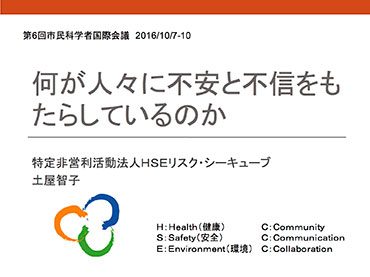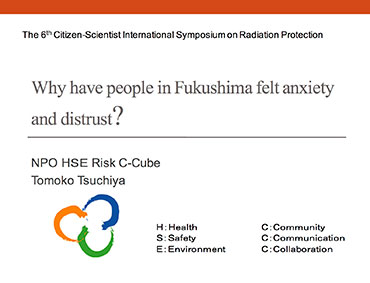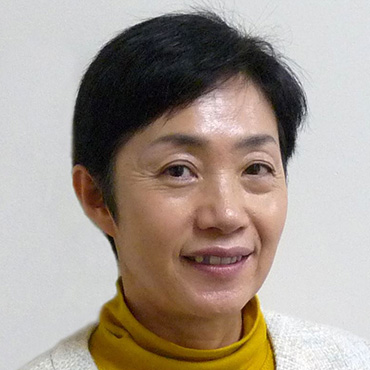講演タイトル:
何が人々に不安と不信をもたらしているのか
Title of the speech:
Why have people in Fukushima felt anxiety and distrust?
講演概要:
WHOは、健康を「病気でないとか、弱っていないということではなく、肉体的にも、精神的にも、そして社会的にも、すべてが満たされた状態」と定義している。果たして、日本政府は福島の人々の、健康に暮らす権利を守ろうとしてきたか? 事故直後に伝えられなかった汚染情報、不十分な被ばく検査、専門家判断を強いた“リスクコミュニケーション”と称する説得活動、そして帰還優先の復興計画。これらこそが人々の不安や不信の源であることを紹介する。科学的データとともに、人々の知る権利と決定する権利を保障する取り組みが必要である。
Abstract:
WHO defines HEALTH as “a state of complete physical, mental and social well-being and not merely the absence of disease or infirmity”. Has Japanese government really protected the right to health of the people of Fukushima? Late information concerning radioactive contamination, insufficient examination of radiation exposure doses, activities presented as “risk communication” that in fact, imposed expert’s judgements on the victims, and reconstruction plans of local community and compensation policy giving priority to coming back home : on the base of my experience of communication with victims, I will demonstrate that these very measures are at the root of people’s anxiety and distrust. To recover their mental and social well-being, people in Fukushima need not only to be given scientific data about their physical health, but they also need to see guaranteed their right to know what their risks are and, to be able to decide their life by themselves.



